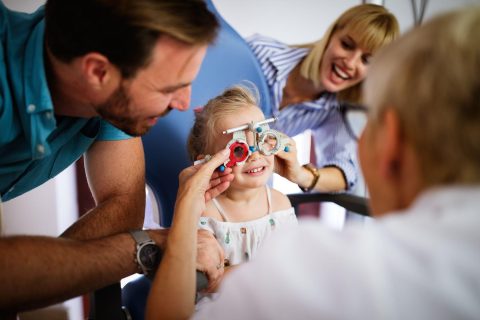Maisie and her family
6 April 2021 (last updated 1 May 2024)
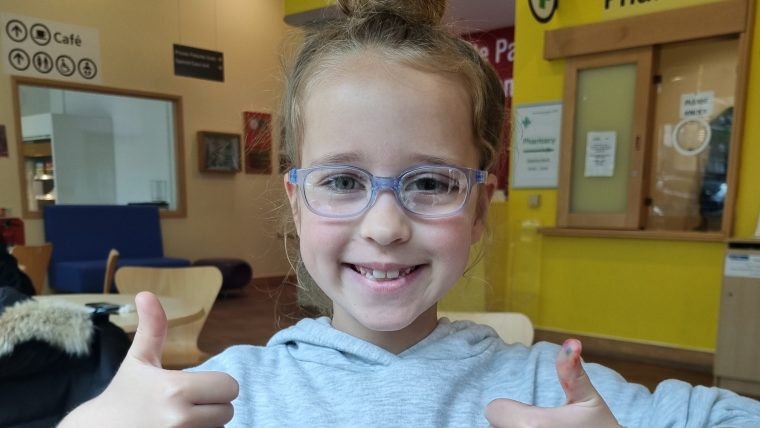
Eight-year-old Maisie was born completely blind in one eye due to a congenital cataract. She was first admitted to Moorfields at 10 days old and operated on at just five weeks.
Ever since her first operation, Maisie has been a regular patient at Moorfields. For Maisie’s parents it was a huge shock to learn the long-term implications of their child’s eye condition.
Although Maisie’s vision has improved, she is still severely visually impaired in her left eye and will likely continue visiting the hospital until she is an adult.
Maisie wore a patch on one eye every day for seven years, to help establish the vision in her left eye which is important as children have a limited window to improve their vision for life.
At five years old she learnt how to take out her contact lens and is currently taking on the challenge of putting it in herself.
What are congenital cataracts?
Learn more
Congenital cataracts are a form of cataract that affect children and babies, where the lens behind the pupil becomes cloudy, making it difficult to see clearly.
When a baby is born with a cataract it is called a ‘congenital cataract’. If a cataract develops in the first six months of life it is known as an ‘infantile cataract’.
Cataracts can affect one or both eyes and are caused by a genetic fault inherited from the parent, a genetic condition such as Down’s syndrome, infections or an injury.
As well as poor vision, cataracts can also cause children to develop a squint (where the eyes point in different directions) or ‘wobbly eyes’ (caused by a condition called nystagmus).
3-4 per 10,000
Around 3-4 out of every 10,000 children born have a cataract
Congenital cataracts do not always impact vision. However, if they do, the child may need surgery to remove their cataract(s). Once a cataract has been removed, it cannot grow back.
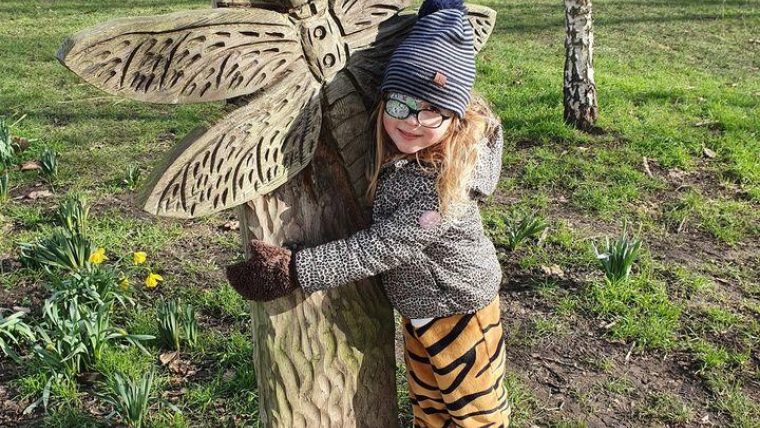
Feeling supported
Maisie goes to the Richard Desmond Children’s Eye Centre at Moorfields which was largely funded through philanthropy
Play is important for children and young people, especially in stressful or unfamiliar places like hospitals.
Every year Moorfields Eye Charity funds new and replacement toys for the Richard Desmond Children’s Eye Centre to help put younger patients at ease. Putting children at ease also helps to reassure parents too.
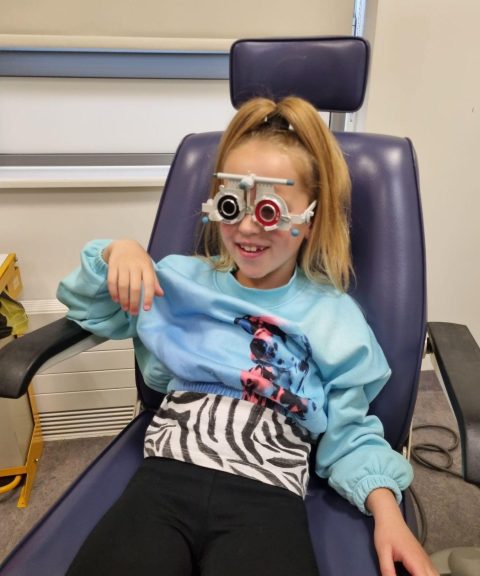
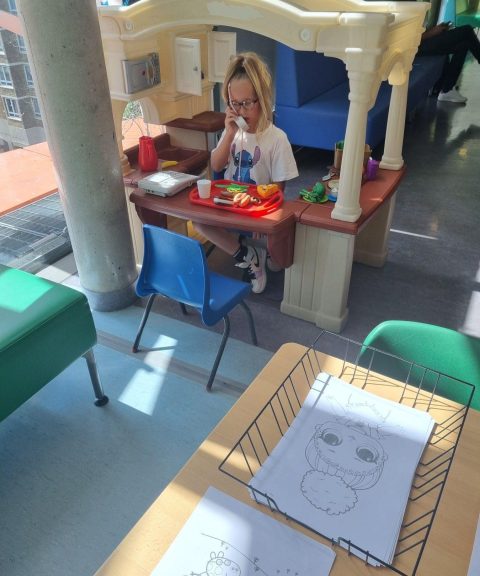
In our case, not only has Maisie has been supported as a patient, but we have been supported as her parents.
Claudia Marr, Maisie’s mum
Maisie and her mum talk about her eye condition and taking part in My Eye to Eye
Saying thank you
After experiencing the care Moorfields provided to their daughter, Maisie’s parents began looking for ways to give back to Moorfields.
When Maisie was one, they decided to participate in our annual fundraising walk Eye to Eye. Along with Maisie’s extended family, they take part in the event every year.
As a family, they all see it as an opportunity to reflect on how far Maisie has come and remind themselves how lucky they are to receive treatment at Moorfields.
The amazing work of the NHS staff has changed our lives and helped us so much. They talk to Maisie, make her feel relaxed, play with her and explain what they are going to do. Maisie now knows ‘the eye doctor’ is a fun and friendly place. We hope that the charity can continue to fund patient support and find the best treatment and technology to help Maisie - and others.
Claudia Marr, Maisie’s mum
The Eye to Eye walk is now a highlight of Maisie and her family’s year. A fantastic, feel-good opportunity to come together to celebrate both Maisie and Moorfields while raising money and awareness for such an important cause.
